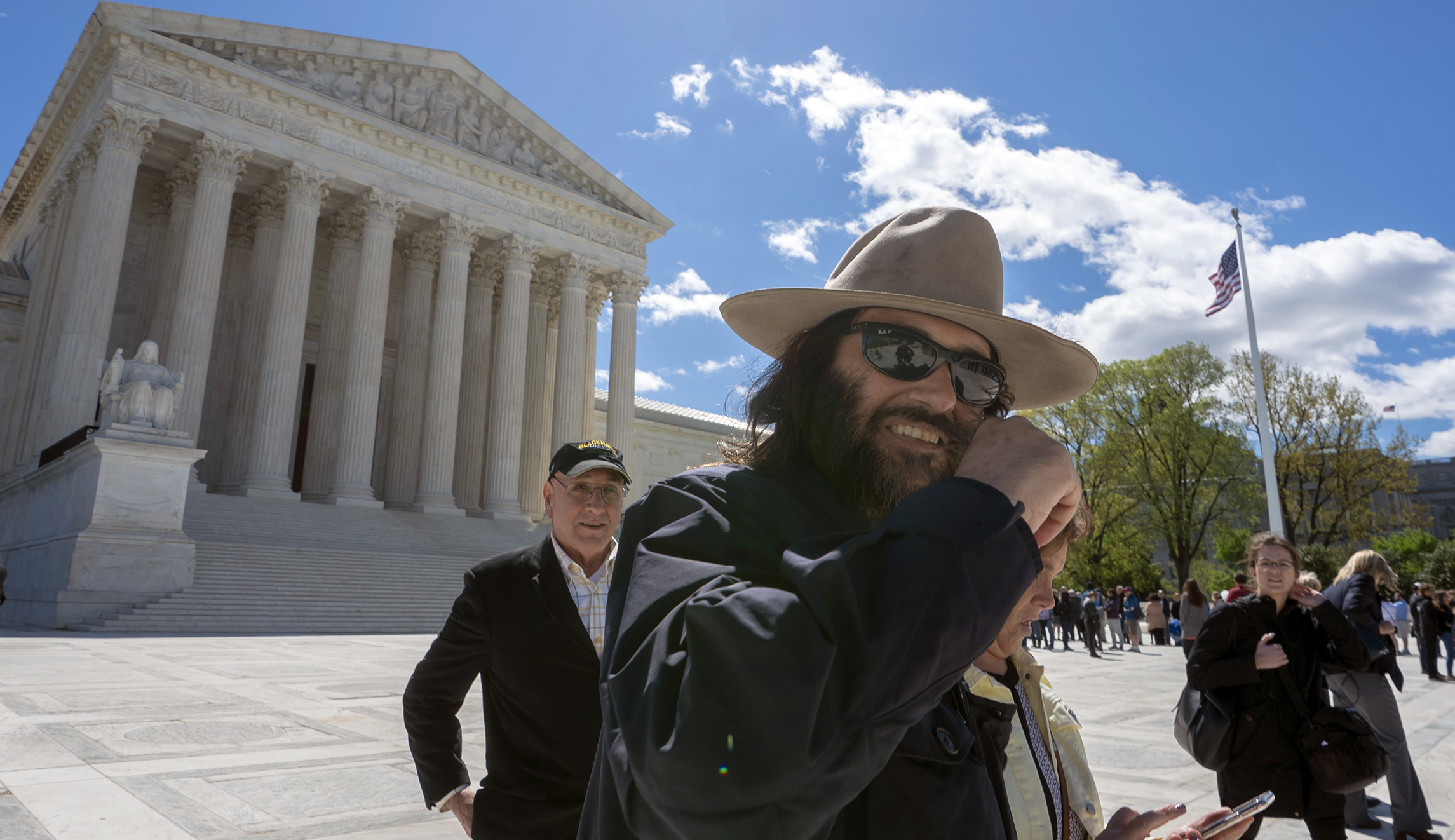A federal law that allows the government to reject trademarks considered immoral or scandalous violates the First Amendment, the Supreme Court ruled Monday.
The law, which the U.S. Patent and Trademark Office used to reject an application from the clothing brand FUCT, pronounced like an obscenity, discriminates on the basis of viewpoint and is “substantially overbroad,” the justices found. The clothing company was founded in 1990 by Erik Brunetti, who applied to register the name in 2011.

Brunetti challenged the government’s decision to the U.S. Court of Appeals for the Federal Circuit, which ruled in 2017 that while the government correctly deemed the mark to be scandalous, the prohibition on registering immoral or scandalous marks is an unconstitutional restriction of free speech.
Monday’s decision paves the way for Brunetti to secure the federal trademark protection he sought.
“The most fundamental principle of free speech law is that the government can’t penalize or disfavor or discriminate against expression based on the ideas or viewpoints it conveys,” Justice Elena Kagan wrote for the majority. “The ban on ‘immoral’ and ‘scandalous’ trademarks does just that. Trademarks are a kind of expression.”
Justices Clarence Thomas, Ruth Bader Ginsburg, Samuel Alito, Neil Gorsuch, and Brett Kavanugh joined Kagan’s opinion.
Justice Sonia Sotomayor, however, warned the court’s ruling “will beget unfortunate results” and leave the federal government with “no statutory basis to refuse, and thus no choice but to begin, registering marks containing the most vulgar, profane or obscene words and images imaginable.”
The justices heard oral arguments in the case in April, during which they and the attorneys arguing before them successfully avoided uttering one of the most versatile profanities in the English language and instead opted for euphemistic references or spoke in broad terms about profanities and sexually explicit material.
The provision in dispute has been on the books for more than a century, and Justice Stephen Breyer expressed concern that a ruling in Brunetti’s favor would open the door for trademarks featuring racial slurs.
Others on the nine-member court, however, acknowledged that the law was sweeping and inconsistently applied by the Patent and Trademark Office. The government, for example, approved the mark FCUK, an acronym for the U.K.-based clothing chain French Connection.
But the Trump administration argued that in refusing to approve such trademark applications, the government was protecting unwitting members of the public from material they find offensive.
The Supreme Court’s decision follows a 2017 ruling in which justices invalidated a provision of federal trademark law that bars registration of “disparaging” marks.
In that case, which involved an Asian American band called The Slants, the high court said the measure discriminated on the basis of viewpoint and thus violated the First Amendment.
Referencing the earlier case, Kagan said the neighboring provision involving immoral or scandalous trademarks “infringes the First Amendment for the same reason: It, too, disfavors certain ideas.”

